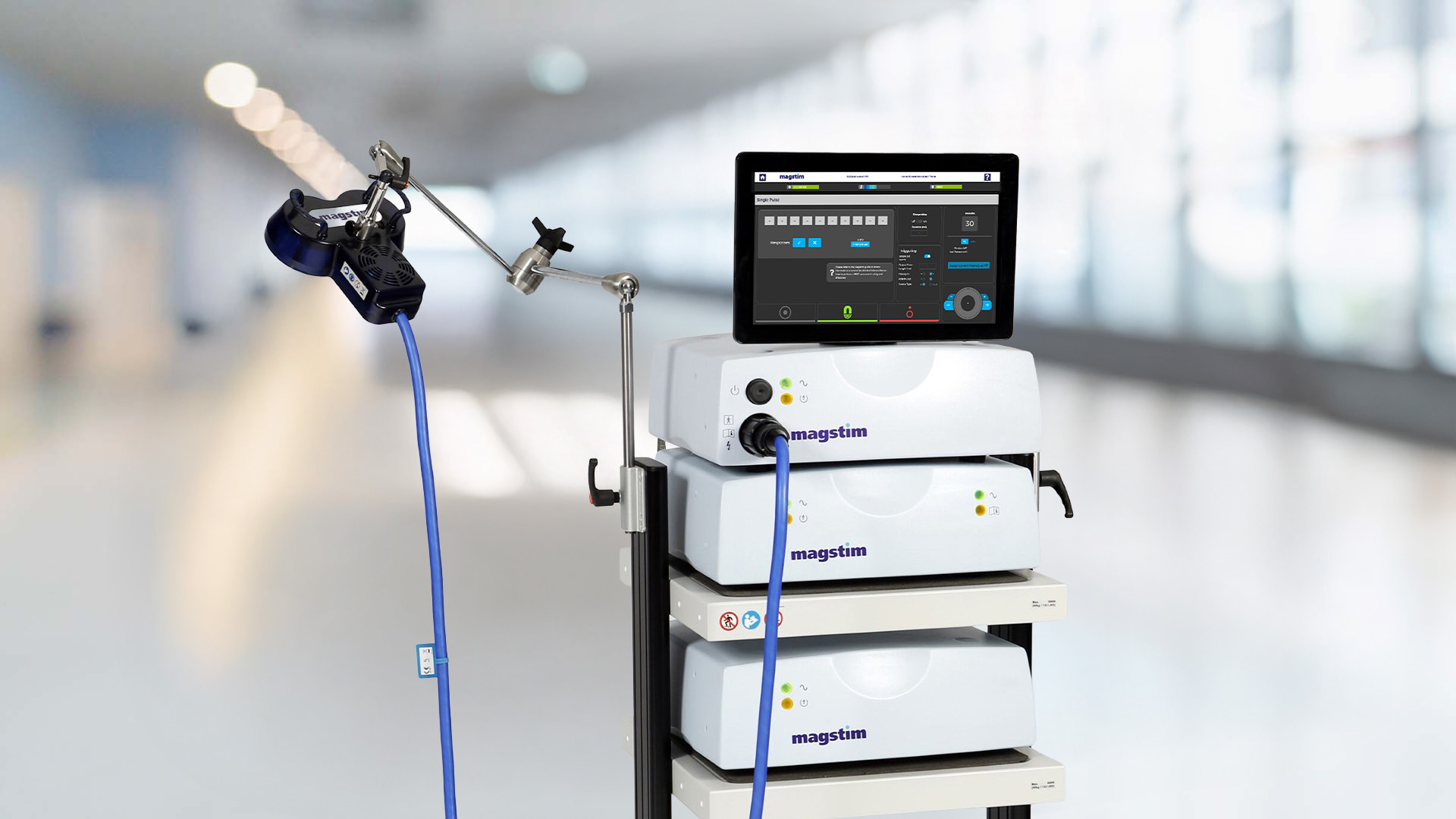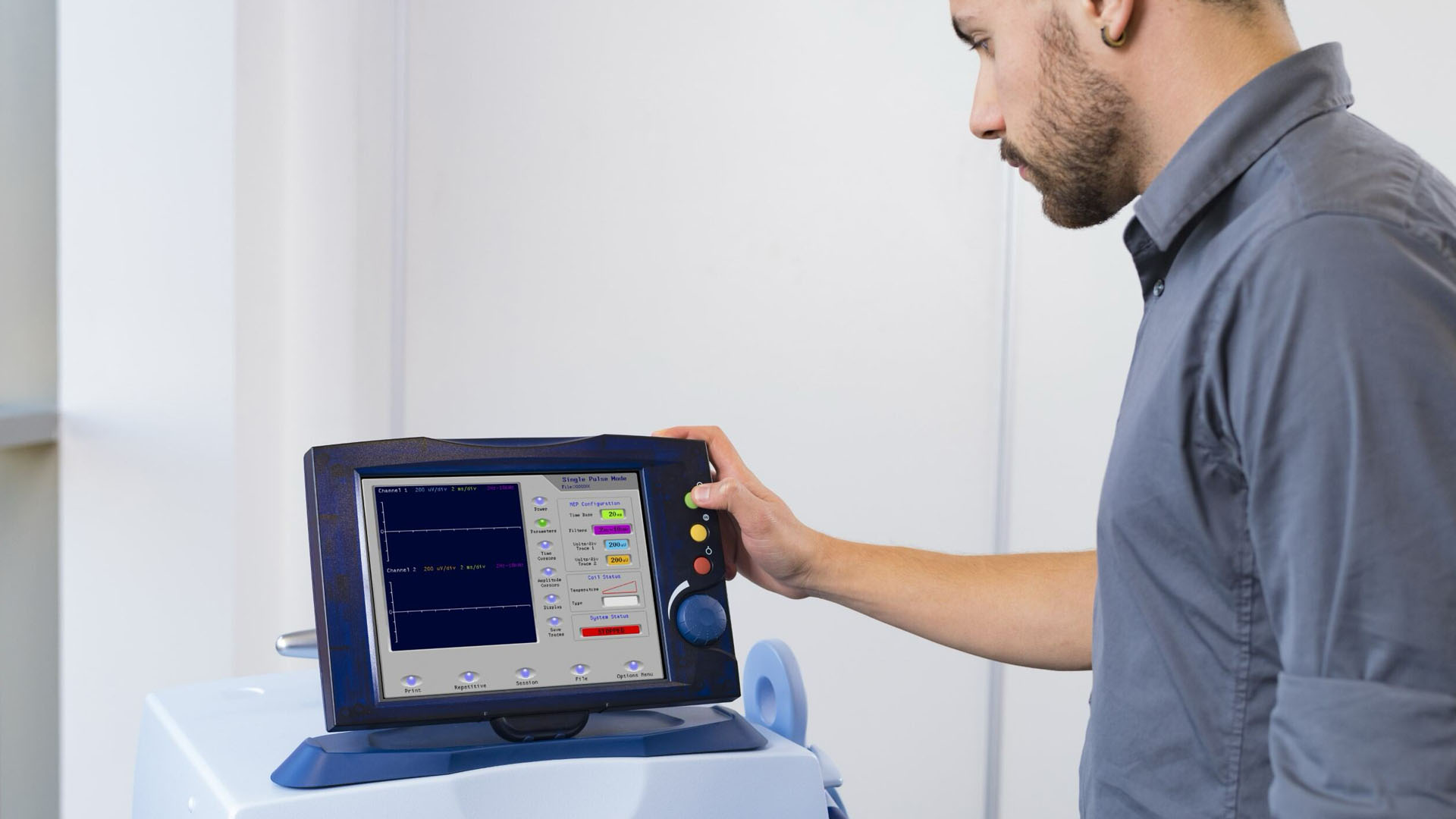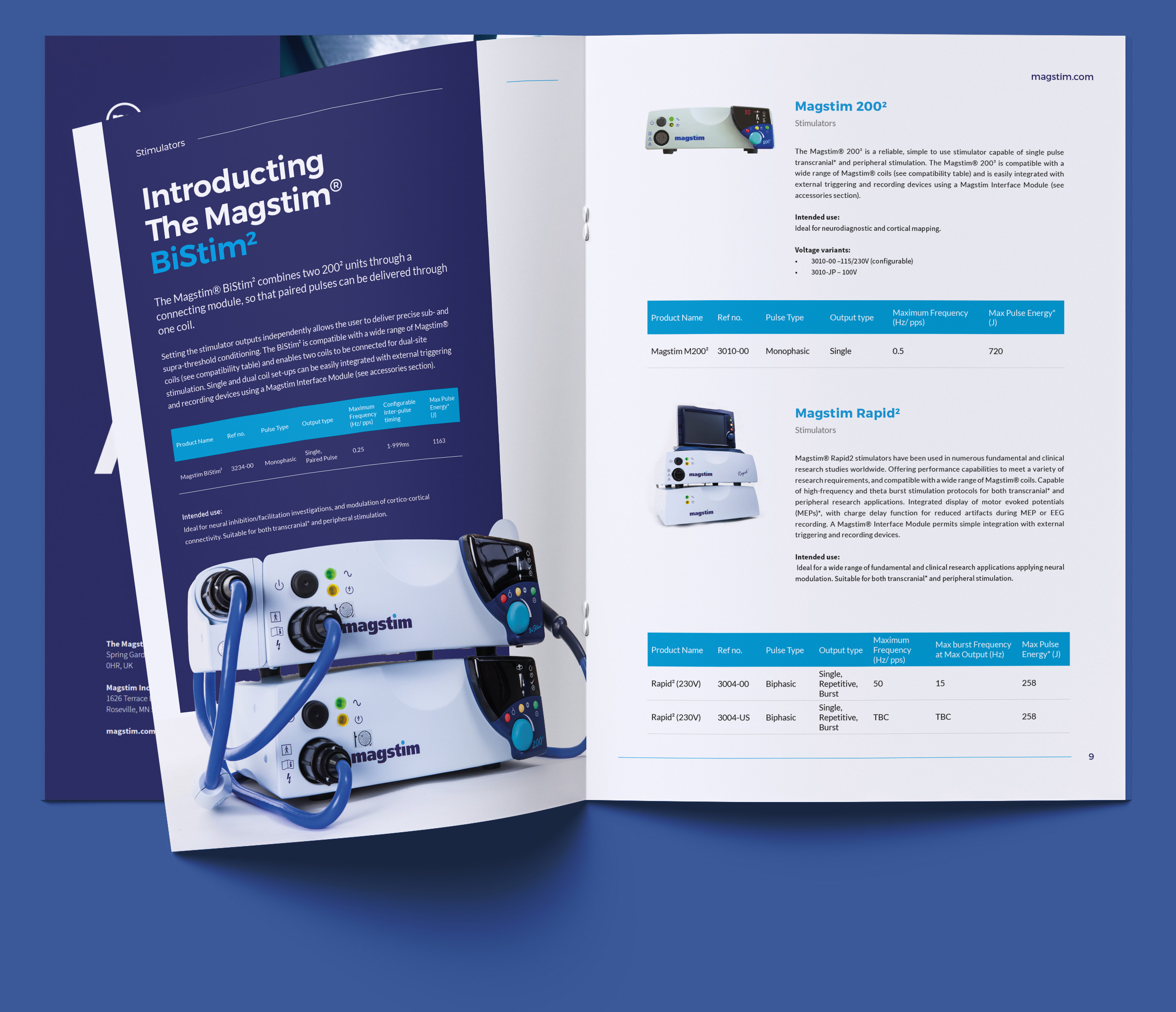
The Next Evolution in TMS Research: New Rapid rTMS System
At Magstim, innovation never stands still, and neither should your research or TMS treatments. We’re proud to announce the release of the New Magstim Rapid TMS System, a powerful update to one of the most trusted TMS devices in neuroscience. Engineered with enhanced performance, improved usability, and comprehensive integration capabilities, this next-generation device is your gateway to new possibilities in transcranial magnetic stimulation (TMS) research.
Now FDA cleared for stimulation of peripheral nerves in pain relief, medical professionals can unlock new potentials for the treatment of pain in patients.

Magstim: Advancing Neuromodulation Research with TMS
Magstim is at the forefront of providing leading neuromodulation research solutions, empowering researchers with innovative technology to explore the complexities of the brain. Our research solutions are designed to facilitate groundbreaking discoveries, from understanding brain function to developing turn-key novel treatments for neurological and psychiatric disorders. Magstim has been featured in over 15,000 citations, if you would like to partner with Magstim, please contact us.
Magstim TMS Research Opportunities

For researchers conducting research trials, Magstim’s team of experts provides guidance on study design, data collecton, and analysis, facilitating successful research outcomes. Contact us to speak to an expert.
Magstim collaborates with leading research institutions and universities worldwide to drive innovation in neuromodulation research. Through these partnerships, we exchange knowledge, share best practices, and collaborate on research projects. Magstim is committed to collaborative partnerships in the Research community to help better understand the functioning of the nervous system and to improve the lives of patients.
Magstim offers a range of TMS research systems that provide precise and targeted stimulation of specific brain regions. Researchers can customize stimulation protocols to investigate a wide range of cognitive functions, motor responses, and sensory processing. Magstim TMS research systems offer unmatched versatility and control for in-depth investigations.
Magstim technology enables Researches to assess the efficacy of transcranial magnetic stimulation (TMS) as a therapeutic intervention for various neurological and psychiatric disorders. Researchers are actively studying the effects of TMS, optimizing TMS practices, and pinpointing specific patient groups that may receive the greatest advantages from TMS therapy. Magstim TMS offers a range of Clinical Research solutions, click here to view our TMS product range.
TMS Neuronavigation has been widely used by Researchers for mapping and precisely monitoring stimulation of the brain. TMS Navigation enhances the accuracy of coil placement during TMS sessions. This reduces the risk of off-target stimulation and ensures that the magnetic pulses are delivered to the intended brain regions, optimizing the therapeutic effects. This is particularly crucial in TMS, where the efficacy of the treatment often depends on accurate and targeted stimulation of neural circuits associated with the patient’s condition. Click here to view Magstim StimGuide Pro – a uniquely designed TMS Neuronavigation solution for Researchers.
Transcranial Magnetic Stimulation (TMS) holds significant promise in translational medicine, serving as a valuable tool for bridging the gap between basic research and clinical applications. In translational medicine, TMS can be employed to investigate the underlying neural mechanisms of various neurological and psychiatric conditions, providing insights into brain function and dysfunction. By non-invasively modulating neural activity, TMS enables researchers to probe specific brain regions and circuits implicated in disease pathology, paving the way for a deeper understanding of neurological disorders such as depression, schizophrenia, and chronic pain. Moreover, TMS can facilitate the development and refinement of novel therapeutic interventions by serving as a platform for testing and validating potential treatments in preclinical and clinical settings. Through its ability to modulate neural plasticity and activity patterns, TMS holds the potential to revolutionize translational medicine by offering innovative approaches to diagnosis, treatment, and personalized patient care in the realm of brain-related disorders.
Researchers may require the need to do multi-site stimulation, Magstim has a solution for this utilizing the D40 TMS stimulation coils. The unique design of the coils allows Researchers to use multiple coils due to the small footprint design of the coils. Click here to view our TMS coil range.
Magstim technology affords Researchers to use TMS to measure MEPs (motor evoked potentials) by using a magnetic field to induce an electrical field in the motor cortex causing depolarization of motor neurons.
Motor Evoked Potentials (MEPs) are commonly used in Transcranial Magnetic Stimulation (TMS) research for several reasons:
1. Assessment of Corticospinal Excitability: MEPs provide a direct measure of corticospinal excitability, reflecting the integrity and function of the corticospinal tract.
2. Localization of Motor Cortical Representation.
3. Evaluation of Neuroplasticity: Changes in MEP amplitude and latency can indicate alterations in neuroplasticity, such as synaptic potentiation or depression, within the motor cortex.
4. Investigation of Motor System Pathophysiology: Abnormalities in MEP characteristics can provide insights into motor system pathophysiology associated with various neurological disorders, such as stroke, Parkinson’s disease, multiple sclerosis, and spinal cord injury.
5. Outcome Measure in Interventional Studies: In clinical trials and interventional studies, MEPs serve as objective outcome measures for assessing the efficacy of therapeutic interventions targeting the motor system.
Overall, MEPs are valuable neurophysiological markers that play a crucial role in TMS research by providing insights into motor system function, plasticity, and pathology. Their widespread use underscores their importance as a versatile tool for investigating brain-behavior relationships and developing novel therapeutic approaches in both basic and clinical neuroscience.
Magstim’s TMS-EEG solutions combine the benefits of TMS and EEG technologies, offering a comprehensive approach to brain stimulation and monitoring. These systems allow researchers to simultaneously stimulate specific brain regions with TMS while recording real-time neural responses with HD-EEG. This synergy provides a deeper understanding of how the brain responds to stimulation and allows for precise mapping of functional brain networks.
Personalized medicine is a very hot area of research. Closed-Loop TMS:EEG allows physicians and researchers to provide therapeutic TMS to the patient based upon the current state of the patient’s brain.
Closed-loop EEG/TMS systems represent a cutting-edge approach in neuroscience research and clinical neuromodulation, offering the potential for precise, adaptive, and individualized manipulation of brain activity for both scientific investigation and therapeutic interventions.





